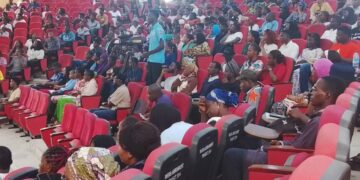Justice James Omotosho of the Federal High Court, Abuja, has set aside some sections of the Companies and Allied Matters Act (CAMA) 2020, which were considered to infringe on the fundamental human rights of the Nigerian citizens.
The court struck out sections 839, 842, 843, 844, 845, 846, 847, and 848 of the CAMA 2020 for being inconsistent with the Nigerian Constitution.
The court earlier ruled that the plaintiff, Emmanuel Ekpenyong, had a locus standi to institute the suit on the subject matter.
Ekpenyong, an Abuja-based lawyer, had in a suit marked: FHC/ABJ/CS/1076/2020, sued the National Assembly, Corporate Affairs Commission (CAC) and the Attorney-General for the Federation (AGF) as 1st to 3rd defendants respectively, over the CAMA law.
In the originating summons dated and filed on August 31, 2020, the lawyer prayed the court to determine whether he had the locus standi to institute the proceeding and whether the provisions of Sections 839, 842, 843, 844, 845, 846, 847, 848 and 851 of the Companies and Allied Matters Act 2020 infringes on the plaintiff’s right to thought conscience, and religion as enshrined in Section 38 of the 1999 Constitution (as amended).
He urged the court to further determine whether those sections infringed on his freedom of peaceful assembly and association as enshrined in Section 40 of the 1999 Constitution (as amended).
He also prayed the court to determine whether the provisions on the Administrative Proceeding Committee in section 851 of CAMA, 2020 was inconsistent with the provisions of Section (6)(6)(b) and Sections 36(1) and 251(1) (e) of the 1999 Constitution.
He asked the court to determine whether the court had powers to grant mandatory injunctive reliefs against the defendants.
The lawyer, therefore, prayed the court to void the affected sections, having infringed on his fundamental human rights.
Delivering the judgment, Justice Omotosho held that under Article 3 (e) of the Preamble to the Fundamental Rights (Enforcement Procedure) Rules, anyone could bring fundamental human rights matters on his own interest, on behalf of another person or even in public interest.
He, therefore, held that the plaintiff in the case had locus to institute the suit.





